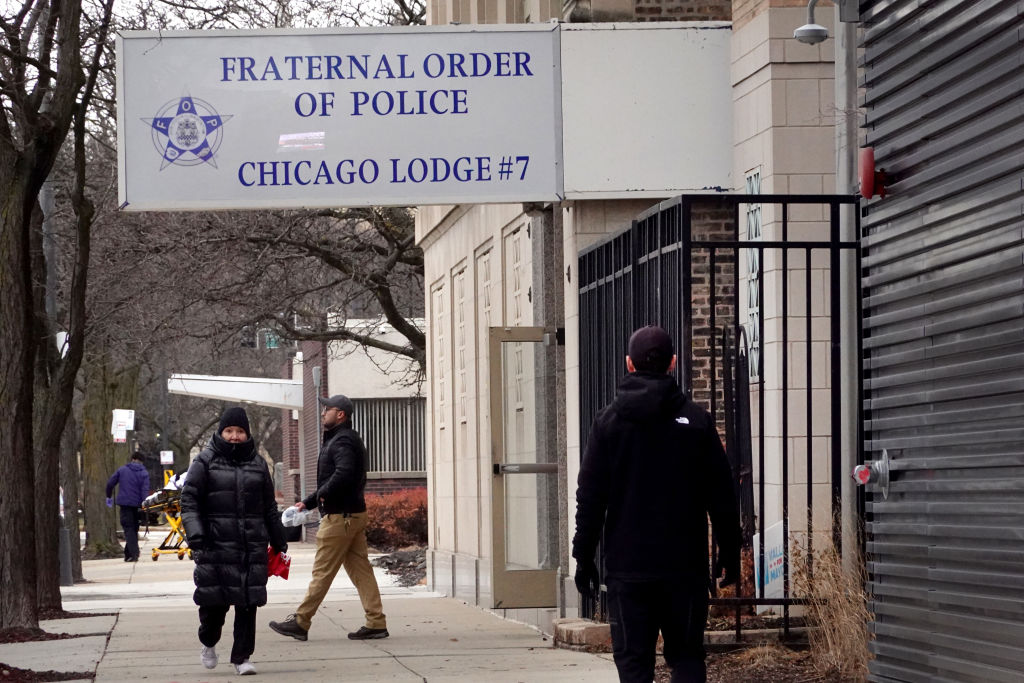Illinois courts are quickly falling behind in key areas of data-collection required by the state’s new Safety, Accountability, Fairness and Equity-Today (SAFE-T) Act – a lag that is making it increasingly difficult to measure the implementation and effectiveness of Illinois’ new pretrial release system.
While the SAFE-T Act required the collection of county-level data to begin in July 2022, data collection for most counties did not begin until September 18, 2023. The responsibility for the data collection has been split into two groups, the 71 counties managed by the Administrative Office of Illinois Courts’ Office of Statewide Pretrial Services and the remaining 31 counties that are left to collect the data on their own.
It is vital that the courts release this data and their analyses because they are not subject to Illinois’ Freedom of Information Act. Since the courts are not subject to FOIA, the public will only be able to access this information if the courts choose to release it.
What’s required
The SAFE-T Act brought sweeping changes to Illinois’ criminal justice system, including the elimination of cash bail. Defendants now go through pretrial detention hearings to determine whether or not they will be detained, and under what conditions they will be released.
With the elimination of cash bail, lawmakers sought new methods for measuring and tracking the pretrial release system. The SAFE-T Act included a mandate for the Administrative Office of the Illinois Courts to “collect quarterly, county-level data” starting July 1, 2022, and release analyses of this data. To aid with collecting this data, the Illinois Supreme Court established the Office of Statewide Pretrial Services (OSPS) to collect and assess this data.
The SAFE-T Act also required the Administrative Office of the Illinois Courts to create the Pretrial Practices Data Oversight Board to help run the data collection. The board would ��oversee the collection and analysis of data regarding pretrial practices in circuit court systems,” as well as write a plan on how the Administrative Office of the Illinois Courts would administer data collection and analysis.
That quarterly, county-level data covers pertinent questions that arise from the new system, including:
- The number of pretrial detention hearings
- How many hearings end in detention or release
- The average length of stay in pretrial detention
- Whether those who are released appear in court.
Both the plan for data collection and first round of data collection were mandated to begin “no later than one year after the effective date of this amendatory Act of the 101st General Assembly.” With the effective date for that section being July 1, 2021, both the plan for collection and analysis, and the data collection itself, was due on July 1, 2022.
What happened
On July 1, 2022 the Pretrial Practices Data Oversight Board released their plan for data collection, titled “Preliminary Implementation Plan.” In response to the Preliminary Implementation Plan, Kareem Butler from the Chicago Appleseed Center for Fair Courts, an organization that promotes a more equitable criminal and legal system, wrote, “The board’s report met the bare-bones requirement of being released on time: but one year after the board’s convening, little is known about pretrial data collected by 102 counties.” Going on to add that the Preliminary Implementation Plan, “provides many explanations of why data collection will be difficult, but fails to provide solutions to these problems.”
Creating a plan was only the first step; data collection was also supposed to start on July 1, 2022. Data collection was split between two groups: counties whose data collection was overseen by the Office of Statewide Pretrial Services, and counties that would do their own data collection.
Instead, Cara Smith, Director of the Administrative Office of the Illinois Courts’ Office of Statewide Pretrial Services, told BGA Policy that data collection did not begin for the 71 counties the Office of Statewide Pretrial Services oversees until Sept. 18, 2023.
The Oversight Board’s preliminary report also promised that the counties not overseen by OSPS would begin to release data starting July 1, 2023, dependent on funding, but only two have started making data accessible: Cook and Kane counties.
Why it’s a problem
Briana Payton, associate director of policy and advocacy for the Chicago Appleseed Center, told BGA Policy that this information is crucial for “getting a sense of how often prosecutors are requesting detention, and how frequently it is getting accepted.”
The data also reveals the demographics of those detained, potentially allowing advocates, researchers and journalists to see if the new bail system is creating any disparities between white defendants and defendants of color. “We want to be vigilant to guard against the same disparities that existed under money bond.”
In September 2022, Injustice Watch reported on AOIC’s delay in collecting data, and why a lack of data has made it difficult to combat misinformation about the SAFE-T Act’s impact on domestic violence survivors. At the time, Cara Smith, Director of AOIC’s Office of Statewide Pretrial Services, told Injustice Watch that the Pretrial Practices Data Oversight Board would release the 48 data points AOIC was using as a starting point for data collection by the end of September 2022. When BGA Policy reached out to the AOIC in January, 2024 the data points had not yet been made public, although the AOIC did provide BGA Policy with the 48 data points directly.
Not surprising
The piecemeal approach is not surprising given the fragmented state of Illinois court system. David Olson, Professor of Criminal Justice and Criminology at Loyola University, co-director for Loyola’s Center for Criminal Justice, and member of the Pretrial Practices Data Oversight Board, explained the barriers to collecting data facing the AOIC.
Olson told BGA Policy that many of the problems stem from Illinois having a county-level justice system. Beyond coordinating 102 separate clerks of the circuit court, much of the data is housed outside of the courts themselves, meaning the courts must coordinate with other entities, such as sheriff’s offices and the Illinois State Police. “Each has its own elected prosecutor, sheriff, etc.,” Olson said.
“Here is the general issue: people assume ‘the criminal justice system’ is a single system that is fully integrated, uses the same computer systems and follows all of the same practices,” Olson said. Rather than sharing one system, he said, each individual agency has its own information system with different specifications, capacities and data.
Olson said it was not surprising that, between the structure of the system, the need to coordinate between so many different agencies, and the need to develop and implement new technology to meet the data collection requirements of the PFA, it is taking AOIC longer than it was allotted to start collecting and reporting on data.
What BGA Policy recommends
In response to these problems, BGA Policy recommends that the AOIC make public the instructions it provided to the circuit court clerks to integrate each county’s case management systems with the judicial branch’s data collection and reporting platform, including the data fields and parameters. BGA Policy also recommends that the AOIC and the Pretrial Data Oversight Board release an update to the Implementation Plan to describe where the AOIC is in terms of statewide data collection.
While the AOIC takes on the task of integrating the data systems of all 102 counties, to promote transparency, it should commit to releasing reports with as much of the data as they are able to collect, rather than waiting until all the data is in, and maintain a website that links to all counties that are running their own data page.
This data, and the public records within the courts, belong to the public. In order to promote a transparent and well-functioning court system the AOIC needs to provide the people of Illinois with as much data as they can, and clearly communicate where they are falling short, and how they plan to improve.







